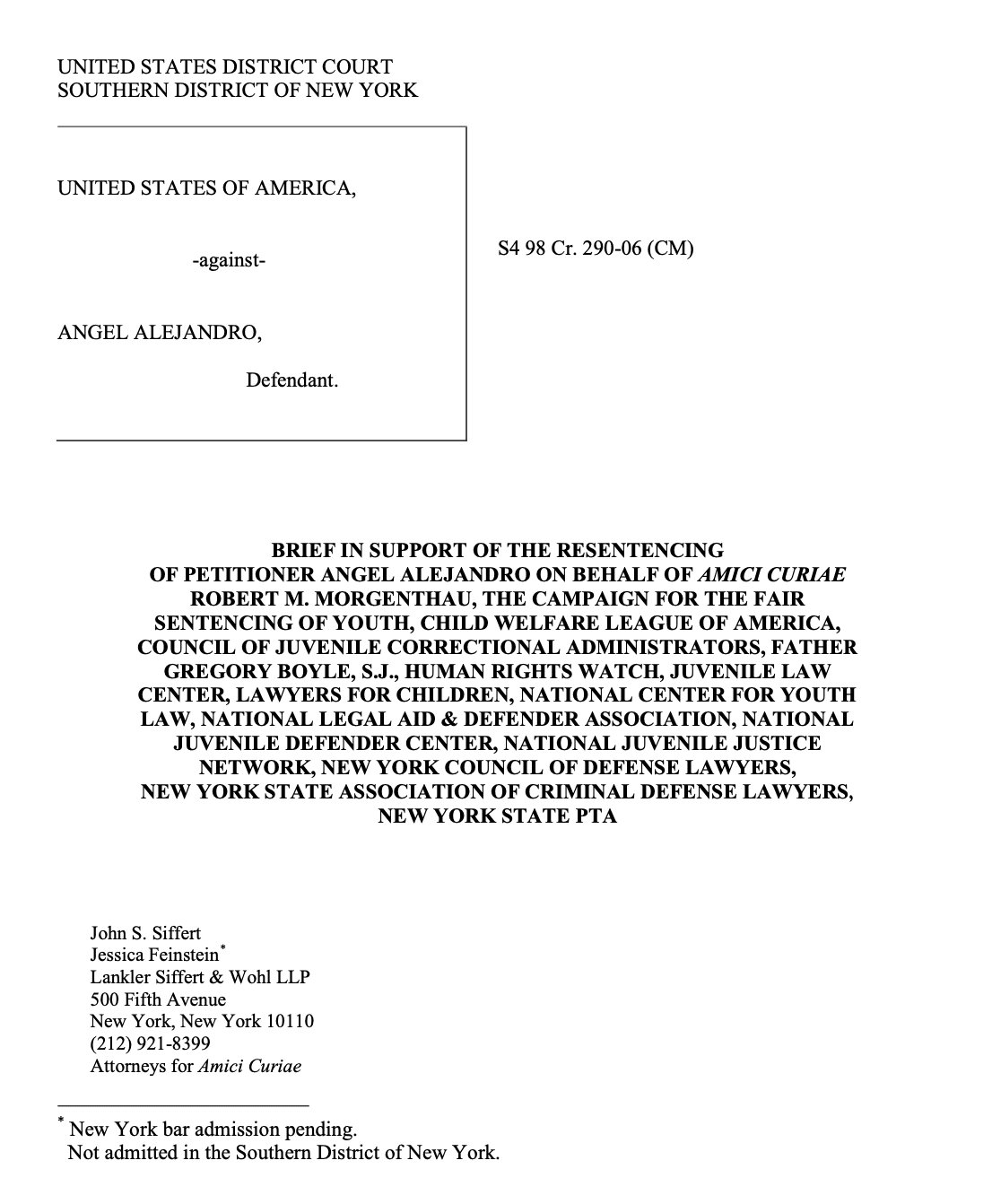
Summary of Argument
This brief is submitted in support of the resentencing of Angel Alejandro on behalf of amici curiae Robert M. Morgenthau, The Campaign For The Fair Sentencing Of Youth, Child Welfare League Of America, Council of Juvenile Correctional Administrators, Father Gregory Boyle, S.J., Human Rights Watch, Juvenile Law Center, Lawyers For Children, National Center For Youth Law, National Legal Aid & Defender Association, National Juvenile Defender Center, National Juvenile Justice Network, New York Council of Defense Lawyers, New York State Association of Criminal Defense Lawyers, and New York State PTA. Amici respectfully urge the Court to reject the U.S. Sentencing Guidelines calculation as the starting point, and rather to follow the teachings of the U.S. Supreme Court by accounting for developments in juvenile justice, science, and criminology which were not considered by the Court at Mr. Alejandro’s original sentencing. Mr. Alejandro’s sentence should be reduced appropriately.
This Court agreed to resentence Mr. Alejandro in the wake of Miller v. Alabama, 132 S. Ct. 2455 (2012), in which the Supreme Court banned mandatory life without parole1 sentences for juveniles who commit crimes before the age of 18. In Miller, the Court predicted that such sentences would be uncommon and rarely imposed because juveniles bear “diminished culpability and greater prospects for reform.” Id. at 2464.
In this brief, we argue that this Court may not use the Sentencing Guidelines to calculate Mr. Alejandro’s sentence because the Guidelines, if applied, would yield an unconstitutional starting point: namely, a life sentence without possibility of parole. Miller requires the Court to take into account that a defendant who was a child at the time of the crime cannot be considered the same as an adult for the purpose of sentencing. This brief also argues that new scientific and criminological knowledge developed since Mr. Alejandro was first sentenced indicates that this Court should not re-impose a life sentence or its equivalent.2 For biological and penological reasons, downward adjustments in Mr. Alejandro’s sentence are necessary to ensure that his punishment is proportionate to the reduced responsibility he bore as a child and reflective of his subsequent maturation and rehabilitation. We leave it to the Federal Defenders to argue the specific facts about Mr. Alejandro’s conduct and characteristics—at the time of the crime or thereafter—that may further mitigate his culpability.